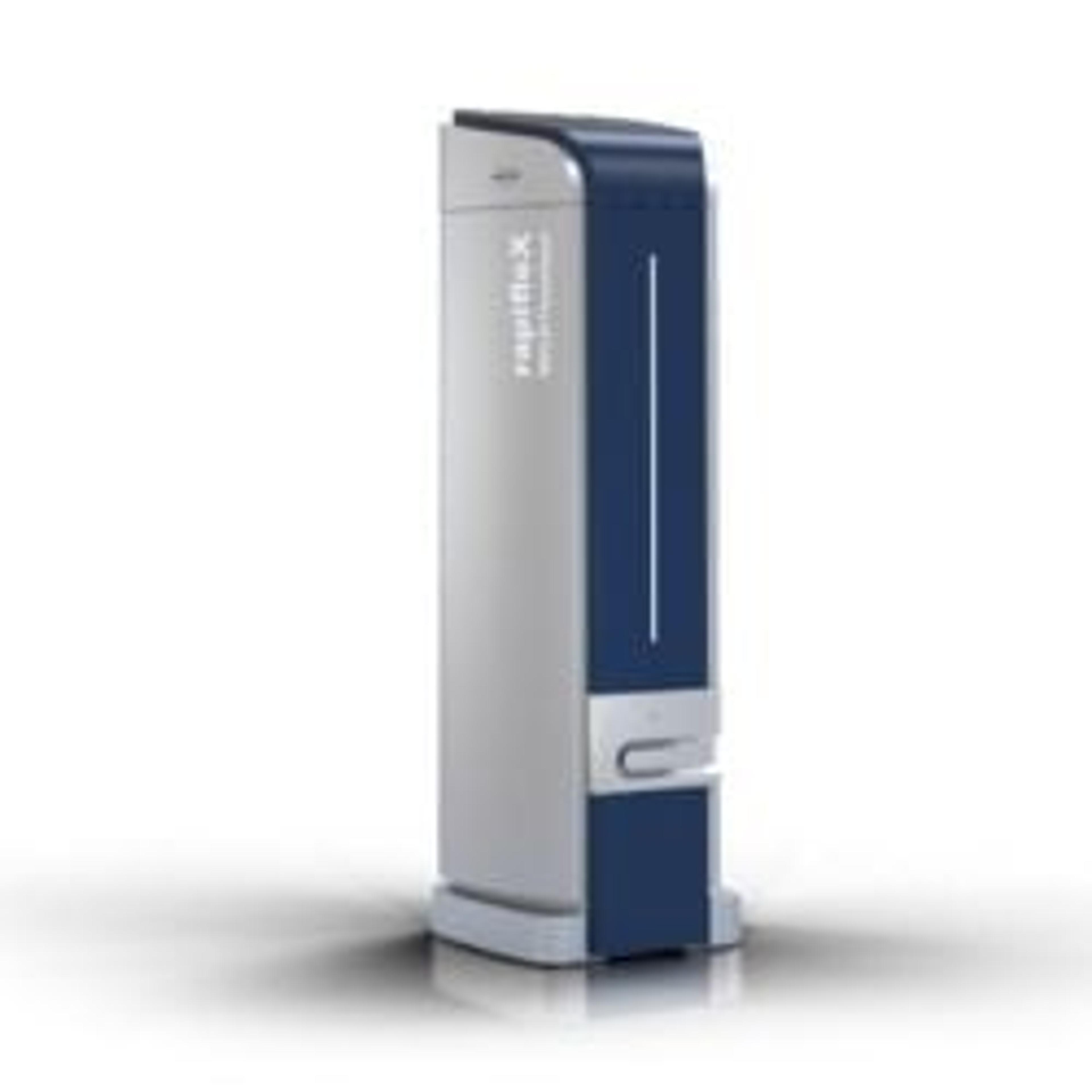Bruker Shows Innovative rapifleX MALDI-TOF/TOF at ASMS 2016
The all-new rapifleX™ extends MALDI leadership in protein characterization, biologics development and QC, as well as in Mass Spectrometry Imaging (MSI)
6 Jun 2016
At the 64th ASMS Conference, Bruker introduces rapifleX™, the highest performance MALDI-TOF/TOF mass spectrometer, which had been shown as work-in-progress to early adopters at HUPO 2015. The rapifleX is by far the most advanced TOF/TOF system today, and was re-designed from the ground up to meet today's highest demands for in-depth intact and top-down protein characterization, and high-performance, high-throughput mass spectrometry imaging (MSI).
With its next-generation TOF/TOF ion optics and smartbeam® 10 kHz proprietary laser technology, the rapifleX system now offers significantly higher speed, better mass resolution and mass accuracy, and a significantly enhanced MS/MS mass range to enable new research and routine applications. Its unprecedented 10 kHz speed and ion source robustness, its wide dynamic range, higher specificity and resolution all contribute to the detailed characterization of biologically and clinically relevant lipids, peptides and proteins, resetting customer MALDI-TOF/TOF expectations for in-depth protein characterization and imaging of tissues, cell cultures, or other applications. Its enhanced ease-of-use, robustness and stability make the rapifleX a game-changer for research and large-scale validation.
Dr. Julian D. Langer, at the Max-Planck Institute (MPI) of Biophysics and the MPI for Brain Research in Frankfurt am Main, Germany, stated: "In our lab, with its high MS2 isolation efficiency, resolution and mass accuracy at high m/z values, the rapifleX TOF/TOF has been instrumental in identifying and characterizing new subunits of membrane protein complexes, including prokaryotic respiratory chain complexes and antibiotic drug targets."
The rapifleX TOF/TOF is well-suited for detailed protein characterization in life science research and biopharmaceutical laboratories. Many protein characterization tasks can be improved to gain better biological insight, including
- Fast identification of post-translational modifications (PTM),
- Top-down protein sequencing,
- Patented T3-Sequencing to identify or confirm suspected modifications or sequence alterations near protein N- or C-termini,
- Automated disulfide analysis of intact proteins without a priori assumptions using Bruker's unique DisulfideDetect™ method and software, and
- Disulfide scrambling and trisulfide analysis with simplicity, speed and dynamic range.
Tissue- and cell-type specific proteomics is a major advancement for relevant biomarker discovery and identification, and requires MALDI imaging studies which include the identification of detected biomarker candidates for validation and subsequent development of targeted assays. The rapifleX extends the MALDI Tissuetyper® imaging capabilities with rapid, spatially resolved MS/MS data. It supports the patented ImageID™ workflow for biomarker discovery in MALDI imaging cohort studies, by obtaining matching identifications of tryptic peptides by LC-MALDI-TOF/TOF analysis.
About the rapifleX MALDI-TOF/TOF Mass Spectrometer
The rapifleX integrates a novel, 10 kHz smartbeam 3D scanning laser for breakthrough mass-spec imaging (MSI) with dramatically improved spatial resolution, image contrast and quality, and a new ion source for superior robustness and throughput in MSI, pharma screening, as well as for anatomical pathology clinical research.
Unique to the rapifleX is that its laser and ion optics can be dynamically adapted to research or analytical needs. Its smartbeam 3D laser offers different focus profiles for highest performance in different workflows. The MS/MS ion optics can be removed from the ion path to achieve uncompromised MS ease-of-use for imaging, intact protein and peptide applications. The three stage grid-less ion reflector is software adjustable to MS/MS and intact molecular weight measurements to achieve best performance for top-down protein sequencing, as well as for MS/MS analysis up to 8 kDa.
Its 10-bit digitizer improves the dynamic range for quantitative applications, such as High Throughput Screening (HTS) in drug discovery, or quantification of scrambled disulfide bonds and trisulfides in the 0.1-1% range relevant in biologics development and QC.
The rapifleX™ MALDI-TOF/TOF system is for research use only.

